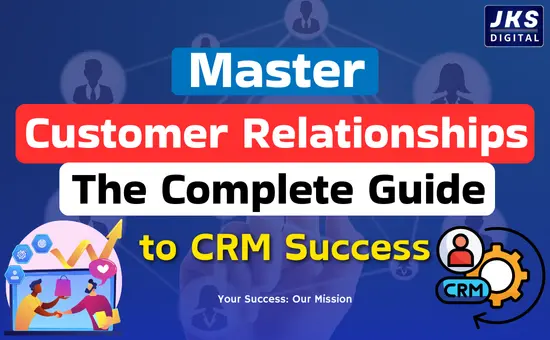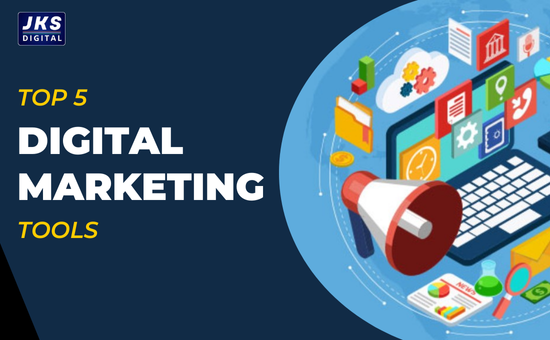Master Customer Relationships: In today’s digital age, every business is engaged in building and maintaining customer relationships and this process has become extremely important in today’s time. Whenever a consumer joins a company, they not only value the quality of the product or service, but giving a positive and personalized customer experience to the users is also an important task for every company. Customer relationship management i.e. (CRM) is an important art, which helps every company to build good relations with its users, keep them satisfied for a long time and increase employment.

Today we have brought complete information about CRM. In this entire article, we will know what CRM is, why it is important in moving every company forward, and how this process can be implemented effectively in your company.
Why is CRM important?
1. Better customer interactions
One of the best benefits of a CRM tool is that it helps companies have personal, purposeful conversations with buyers. When you know your buyer’s preferences, their past interactions, inquiries, and more, you can have more effective and productive conversations with your customers. This whole process increases customer trust and satisfaction with your company, which helps maintain long-term relationships.
2. Better efficiency and automation
CRM simplifies processes through automated tools and workflows. As a CRM tool collects customer data, the tool allows businesses to track reports, alerts, and other events automatically. This makes team members more productive and saves a lot of time. Additionally, CRM tools improve collaboration between different departments as they are a centralized system.
Read Also – SEO for Doctors: How to Rank Your Clinic on Google
3. Better results and measurement
CRM tools also offer customer data analysis. This feature helps companies understand the behavior and preferences of their customers. By analyzing your customer patterns, you can improve marketing campaigns, sales strategies, and customer service plans.
4. Improved customer retention
The purpose of CRM tools is not only to attract customers to a business but also to retain them for a longer period of time. This process ensures continuous communication with the customer and prompt resolution of questions or problems.
5. Growth and expansion
CRM tools provide businesses with insights from their customer data, allowing them to identify new growth opportunities. For example, a company can identify the products or services that are most preferred by customers, or identify the places where their customers are most dissatisfied.
Strategies for implementing a CRM tool
1. Use customer data wisely
The purpose of customer data collected through a CRM tool is to understand and use it correctly to get better results. To provide a personalized experience, track data on customer likes and dislikes, their past buying patterns, and the complaints they have made. Knowing this will help you provide them with better services and offers.
2. Make marketing personal
The purpose of a CRM tool is not just mass marketing. You can make your marketing campaigns even more personal with a CRM tool. For example, you can give your customers special offers on their birthdays or other important dates, or recommend products to them based on their interests.
Read Also – VPS Hosting vs Dedicated Hosting: Which Hosting is Best for Which Type of Website?
3. Use automation
CRM tools help automate time-consuming processes. For example, you can send email reminders to customers every day, anticipating customer needs ahead of time.
4. Smart reporting and evaluation
CRM software comes with data analysis tools that help you create reports. Through these insights, you can evaluate customer behavior, sales performance, and the effectiveness of marketing campaigns. These reports will also help you understand your company, where your business needs improvement and where you need to invest.
5. Improve customer service
Another important aspect of a CRM system is that it helps improve customer service. When customers are not satisfied with a product or service, CRM helps you quickly identify their problems and provide solutions. Also, based on the information from CRM, you can regularly take steps to improve the customer experience.
How to choose the right CRM?
1. Customer-friendliness
First of all, make sure the CRM system is customer-friendly. Every company team should be able to learn and use it.
2. Scalability
The CRM tool system should grow with your business. Make sure it can adapt to your growing customer base and business needs in the future.
3. Integration
Your CRM can integrate with other software and tools, such as email marketing tools, social media platforms, and other business applications. This helps bring information into a central database, ensuring a consistent customer experience across all your channels.
4. Customization
Every business has different needs, so it’s important that you choose a CRM that you can customize to suit your specific needs.
Read Also – ChatGPT vs. Gemini: The AI Battle Royale: Which One Comes Out on Top?
Final Thoughts
CRM is not just a software, but a tool that is a strategy to build long-term and positive relationships with your customers. It helps you improve every aspect of your business, whether it is customer relationships, efficiency or business decisions. By adopting the right CRM software and implementing effective strategies for your business, you can improve customer happiness and loyalty, which can decisively lead to the success of your business.
With CRM, your business can reach new heights.
Stay tuned to JKS Digital to read such latest, engaging and informative posts.






